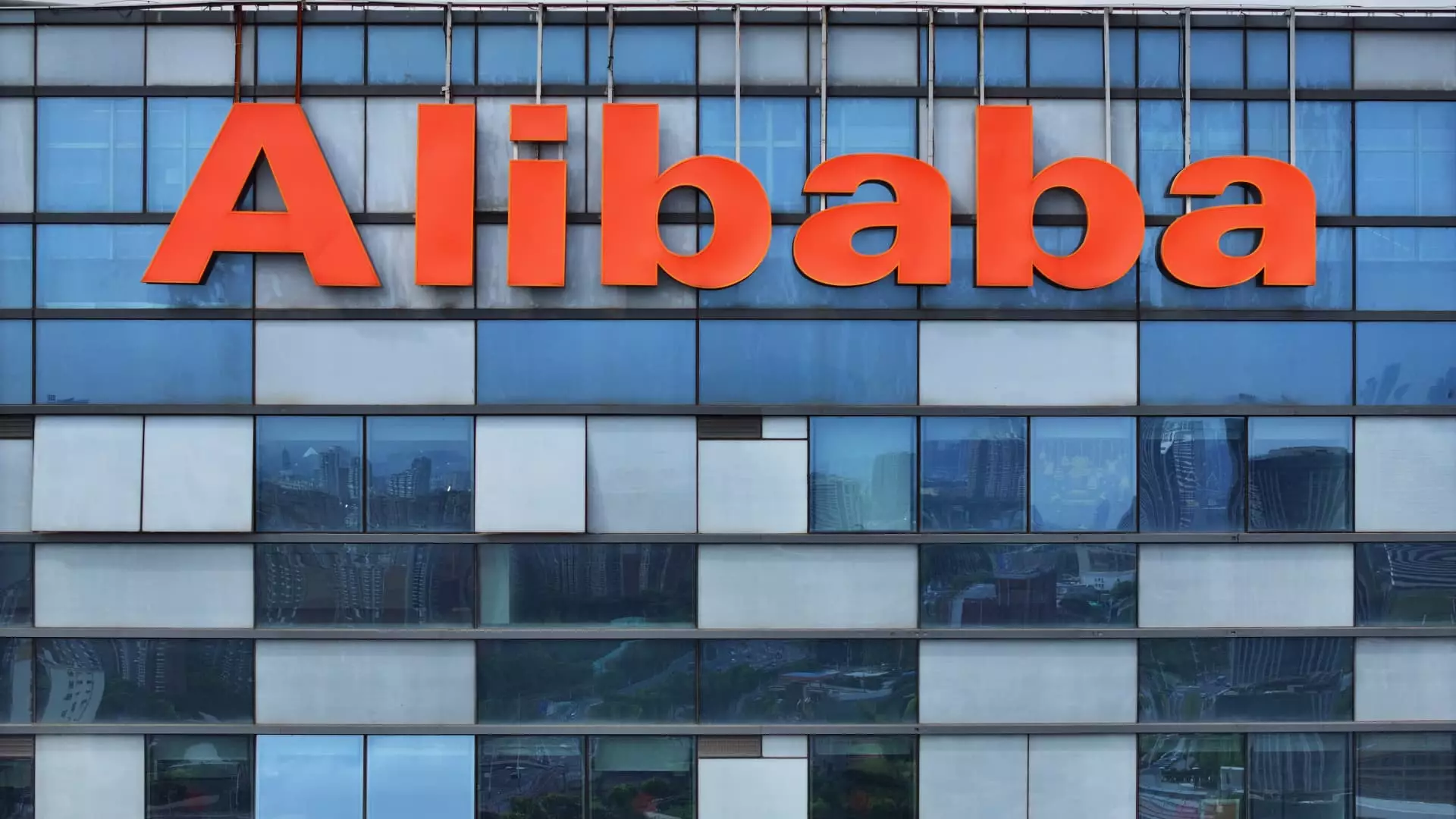Alibaba, a titan in the Chinese technology sector, has demonstrated a remarkable resilience marked by an impressive upswing in its stock prices following the release of its recent quarterly earnings report. As shares climbed dramatically, reaching heights of 11% before settling at an overall increase of 9.18%, the company showcased the potential for sustained growth through its cloud intelligence and e-commerce divisions. This rise reflects a broader optimism surrounding Alibaba, capturing the attention of analysts and investors alike.
The optimism surrounding Alibaba is closely tied to supportive government initiatives aimed at boosting domestic consumption. Notably, in July, the Chinese government unveiled plans to allocate 300 billion yuan (approximately $41.5 billion) to enhance trade-in and equipment upgrade schemes. These measures are designed to stimulate consumer spending, which has been sluggish in recent months yet shows signs of recovery. Nomura, a leading financial services group, expressed confidence in Alibaba’s e-commerce business, predicting strong performance in the first half of the 2025 fiscal year driven by these subsidies.
This recovery in domestic e-commerce is not only beneficial for Alibaba but also signals a rejuvenation of the broader Chinese technology ecosystem. According to Vey Sern Ling, a senior equity advisor at UBP, the overall sentiment within the market has improved significantly, thanks in part to the advancements in digital commerce and technology adoption catalyzed by recent policy measures.
The surge in Alibaba’s stock is underpinned by its continuous investment in technological innovation, particularly in artificial intelligence (AI) and cloud infrastructure. Recent reports highlight that Alibaba has made significant progress in its AI capabilities, launching its Qwen 2.5-Max flagship AI foundation model, which has attracted considerable interest from the market. Barclays has noted that demand for AI inference—which constitutes a sizable 70% of Alibaba’s new business inquiries—has seen explosive growth.
However, with opportunities come challenges, notably the need for substantial financial investment. Analysts predict that the next three years will witness Alibaba channeling more resources into its AI and cloud services than it has over the preceding decade combined. This is a strategic move that reflects not only the industry’s trajectory but also Alibaba’s commitment to maintaining its competitive edge in an increasingly technology-driven environment.
Alibaba’s journey has not been without its complexities, particularly given the stringent regulatory landscape in China. The company faced increased oversight from the Chinese government starting in 2020, coinciding with a failed IPO for its financial affiliate, Ant Group. Since then, the public profile of Alibaba’s founder, Jack Ma, has drastically declined. However, recent developments indicate a potential shift in dynamics. Ma’s participation in a private meeting with President Xi Jinping signals a renewed focus on the role of private enterprises within China’s economic framework.
During this meeting, Xi Jinping encouraged private businesses to enhance their contributions to the economy, fostering an environment that may benefit firms like Alibaba. This discussion could pave the way for a more favorable regulatory atmosphere, easing some of the pressure the company faces.
Alibaba’s financial performance for the quarter ending December 31 saw a remarkable net income of 48.945 billion yuan ($6.72 billion), significantly surpassing analysts’ forecasts. In a contrasting narrative, this figure reflects a threefold increase compared to the previous year’s earnings of 14.4 billion yuan. Moreover, the company’s revenue reached 280.15 billion yuan, exceeding market expectations, further affirming the optimistic outlook surrounding its operational capabilities.
Following the release of these outstanding results, stocks listed in the U.S. gained over 8%, reiterating investor confidence in Alibaba’s growth trajectory. As Alibaba navigates through an evolving technological landscape while adapting to regulatory pressures and consumer demand, the company stands poised to be a pivotal player in the future of both the Chinese and global tech industries.
In summation, Alibaba’s robust quarterly performance, strategic investments in AI and cloud services, government support for consumer spending, and an optimistic outlook collectively indicate a crucial turning point for the company. As the Chinese tech sector rallies, Alibaba’s trajectory could redefine its role within the market and set a precedent for other tech giants navigating similar challenges.

Leave a Reply